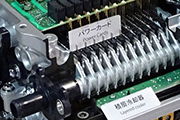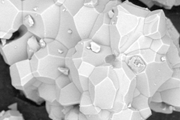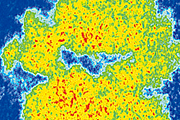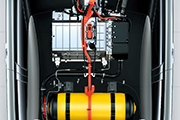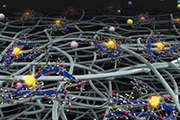Ammonia Mono-fueled Engine System
A study conducted by Hiroshi Miyagawa et al. in collaboration with Toyota Industries Corporation was published in the International Journal of Hydrogen Energy.
In recent years, the use of ammonia (NH3) as a fuel for internal combustion engines has been studied to address global warming and ensure energy security. Owing to its low flammability, NH3 requires an auxiliary fuel; however, unburned NH3 and nitrogen-oxide emissions pose environmental challenges.
This study proposes a practical NH3 monofueled engine system that generates hydrogen from NH3 using an onboard autothermal reformer, thereby eliminating the need for auxiliary fuel. This reformer can produce hydrogen within a short time from a cold start without the need for an external heat supply, thereby enabling a stable engine start-up. In addition, a three-way catalyst and an SCR catalyst were adapted as an exhaust aftertreatment system. The proposed system successfully suppressed NH3 and nitrogen-oxide emissions at the cold start by precisely controlling the air-fuel ratio according to the catalyst state. The insights presented herein are highly beneficial for the development of an engine system with a near-zero environmental impact.
Title: Reduction of Cold-start Emissions from an Ammonia Mono-fueled Spark Ignition Engine
Authors: Miyagawa, H., Suzuoki, T., Nakatani, N., Homma, T., Takeuchi, Y.
Journal Name: International Journal of Hydrogen Energy
Published: October 18, 2024 (online)
https://doi.org/10.1016/j.ijhydene.2024.10.062
























